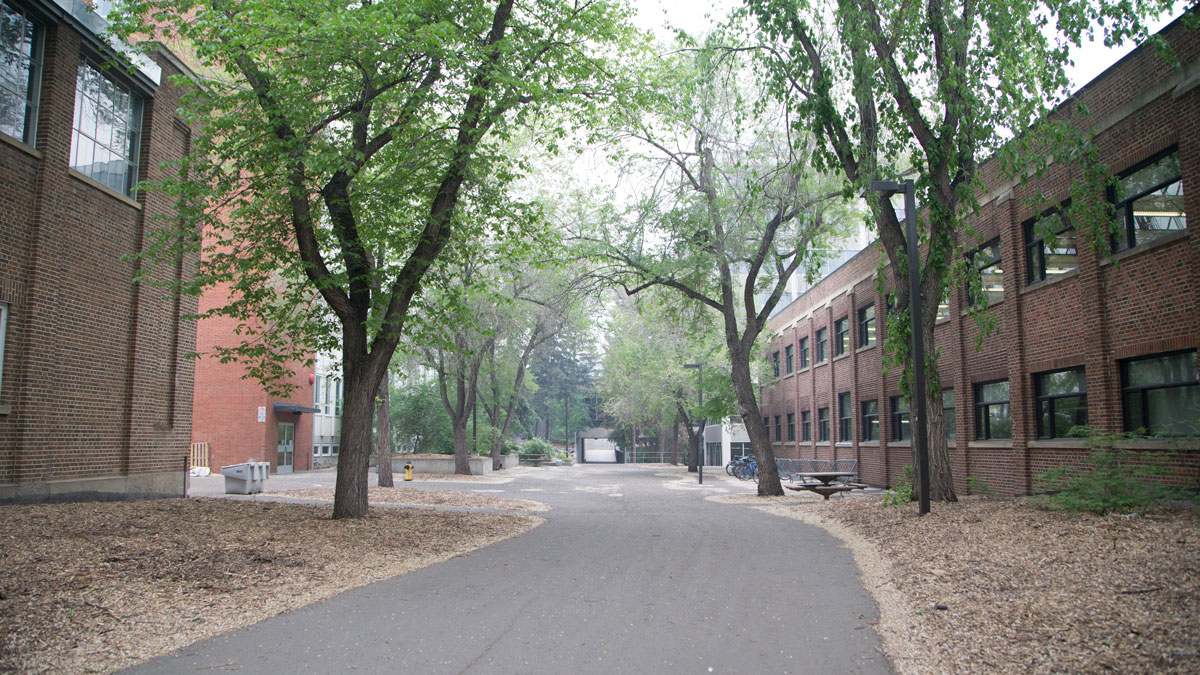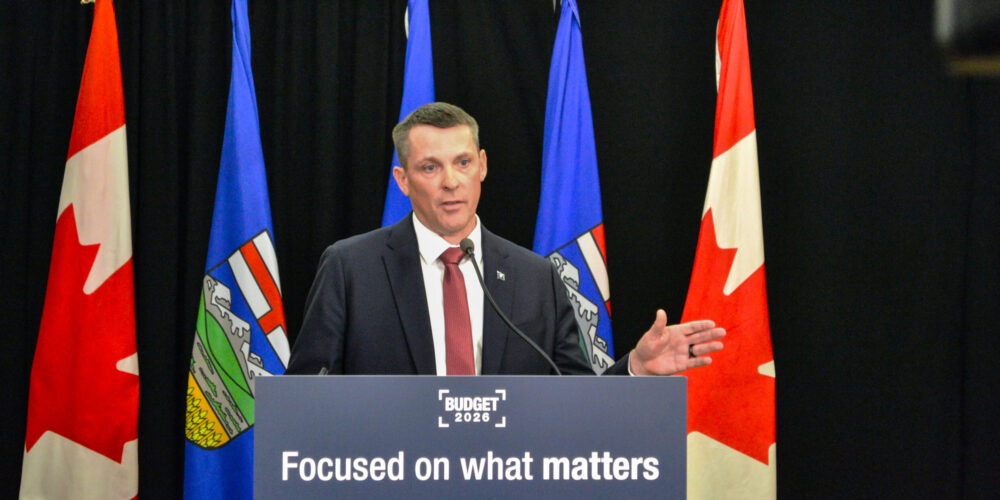Potential smoking ban at University of Alberta debated by student reps, faculty
The Clean Air Strategy, which presents the option of fully banning smoking at the U of A, was debated in a recent meeting of the General Faculties Council
 Joshua Storie
Joshua StorieA new proposal called the Clean Air Strategy presents a full ban on smoking as a potential option to reduce exposure to smoke at the University of Alberta.
The proposal originated after the General Faculties Council (GFC), the highest governing body at the U of A, requested university administration develop a plan to minimize student, staff, and faculty exposure to smoke from cigarettes, vapes, inhaled cannabis, and hookah pipes. Ceremonial tobacco use would still be allowed. The strategy’s options were recently brought forward for discussion at a June 7 GFC meeting.
The other proposed options would add designated smoking areas to the university, or forgo change by deferring to currently existing municipal bylaws that require smokers to remain 10 metres away from a doorway in Edmonton, and five in Camrose.
GFC is set to vote on the Clean Air Strategy in September or October of 2021.
Talia Dixon, Students’ Union vice-president (student life), brought forward several concerns about the potential impact of a full ban during GFC’s discussion.
“Campus is a place where many people live, not just study,” Dixon said. “It’s unreasonable to expect adults to leave their home late at night just to smoke. This could actually present danger, particularly for women, if they have to leave well lit areas with lots of people.”
Dixon also raised the point of enforcement, which she said could make students — particularly those who are Black and Indigenous People of Colour (BIPOC) — feel unsafe, a concern she said has been brought to the fore amid the Black Lives Matter (BLM) movement.
“As long as the University of Alberta Protective Services (UAPS) is officially or unofficially involved in enforcing this ban, we cannot and will not support it,” they said.
Dixon highlighted how the ban would force people to leave campus to smoke in surrounding neighbourhoods, something she said could “pose a reputational risk” and lead to an increase in littering.
“[Banning smoking would just put] secondhand smoke elsewhere, and potentially in places that are near to children,” Dixon said.
Dixon also made the case that many marginalized students and representative groups such as the Aboriginal Students’ Council (ASC) had previously raised concerns to GFC about the ban. Even though the full ban would allow ceremonial tobacco use, Dixon said that this allowance was “not comprehensive of the experience that Indigenous students have with tobacco.”
“Indigenous students disproportionately smoke, and there are very complex reasons for that,” Dixon said. “As a colonial institution, we shouldn’t be criminalizing something on our campus that Indigenous students disproportionately take part in.”
ASC releases statement on Clean Air Strategy
In an update released on June 9, the ASC executive released an updated statement outlining their concerns about the proposed Clean Air Strategy, saying that a full ban could “harm Indigenous students at a disproportionate level.”
“We do not believe that Indigenous students who continue to use nicotine products should be forced off campus,” the statement said.
The ASC executive said that they feel as though their voices have “been largely disregarded on this important topic.”
The statement emphasized the context of settler-colonialism and how this frames Indigenous students’ relation with nicotine products, citing intergenerational trauma as a factor that contributes to increased rates of addiction and substance abuse among Indigenous peoples.
“We do not believe the university should have the power to dictate how Indigenous peoples choose to address the historical impact of settler-colonialism,” ASC said in the statement.
ASC expressed their support for the other two options outlined in the Clean Air Strategy, where smoking would remain as it is on campus, or it would only be permitted in certain areas.
“The ASC is not afraid to use its political capital in order to stand up and represent our students’ needs and views wherever and whatever they may be,” the statement said.
School of public health dean favours full ban
Shanti Johnson, the U of A school of public health dean, spoke in support of the ban.
“There’s an enormous amount of data that shows that second-hand smoking is harmful, and evidence to show that this is an issue that needs to be dealt with,” Johnson said.
Johnson noted that the plan would support the Okanagan Charter the university signed at the end of the Winter Semester. The charter calls on post-secondary schools to focus on health and actively promote health initiatives locally and globally.
“This is walking the walk of implementing how our institution can facilitate health for all,” she said.
She argued that a ban could help set “a standard for social norms.”
“[A ban] would prevent people from starting smoking in the first place,” Johnson said.
Dr. Dilini Vethanayagam, a professor in the department of medicine, responded to Dixon’s comment regarding BIPOC students, saying that she had spoken to BIPOC and based on their discussions believes it would be more accurate to say that the ban would affect people differently based on their respective cultures.
“Yes, there are some cultural areas where this is more acceptable, like [cultures that use] shisha in hookah pipes, but it cannot be put on just the BIPOC issue,” Vethanayagam said.
Vethanayagam added that the medical community is seeing increasingly younger individuals develop lung, colon, and bladder cancer as a result of tobacco use, and that more education should have been going on since 2018, when the discussion was first approached.
“Aggressive education supported through the Dean of Students is definitely … something we need to be doing,” she said.
More pressing issues for clean air, such as pollution, drama professor argued
Piet Defraeye, a drama professor, pointed out an issue he had with the proposal’s name.
“This is a campus with two huge smoke stacks right in the middle of it,” Defraeye said. “We have buses stalling for more than 45 minutes, right in the middle of campus. There’s no reference to that in the Clean Air Strategy, but there are more pressing problems here than smoking.”
Anas Fassih, president of the Graduate Students’ Association, did not speak for or against the full ban, but highlighted that he thinks students should get what they are paying for when they come to the U of A.
“When we talk about smoking on campus, we talk about some students’ living experience,” Fassih said. “Students do not only pay to rent their rooms, they also pay for the campus experience and smoking is part of that experience.”
Fassih also emphasized cultural differences as something the university should take into consideration when contemplating the Clean Air Strategy.
“We really want to make sure that students that come to U of A find the atmosphere conducive to living comfortably, and being productive in their studies.”




